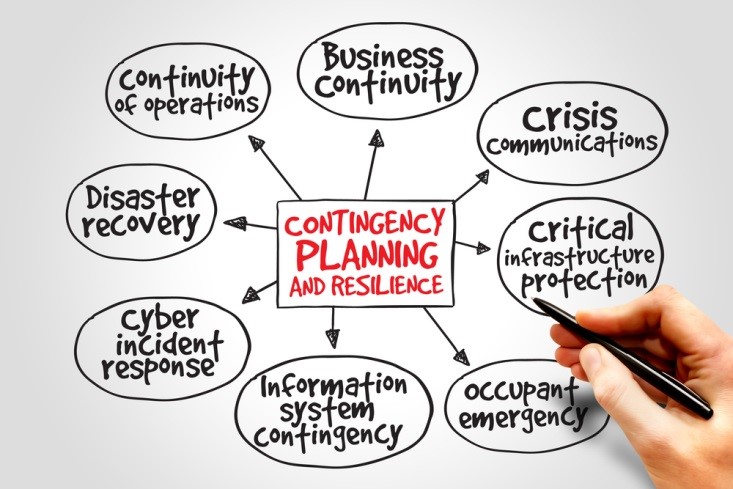It's very difficult not to notice that our world and societies consist of various business connections and trade transactions, which help countries, enterprises, nations and groups implement their particular tasks, improve their living conditions, solve their problems and increase their budgets. Businessmen, entrepreneurs and traders can be compared with powerful engines, which change time and history. As a rule, implementing their business activities and providing client audiences with new useful inventions, such people get impressive revenues, high popularity and large bases of return customers. This is rather obvious, as consumers always require and pay for top-notch products, which could satisfy their sophisticated needs and preferences.
In our age of informational and communicational technologies, businessmen possess even more chances to earn significant funds and become popular vendors with assistance of online stores. These business projects attract large numbers of clients, as they possess wider ranges of different products compared to traditional brick-and-mortars. But not all people are able to become successful businessmen, as they can't handle with high responsibility and possible financial risks. Moreover, after establishing their ventures and companies, plenty of entrepreneurs and sellers have to stop their business activities, as they don't have enough financial resources. The same concerns to online businessmen, who also have to spend their funds on developing and growing their ecommerce projects.
Notwithstanding the problems I have mentioned above, more and more businessmen aspire to implement their business operations online. However, as simple brick-and-mortar owners, online businessmen also have to promote their products, strengthen their business brands and especially compete against various business companies and corporations. Trying to reach these goals, web entrepreneurs and online vendors decide to provide their clients with all possible products, impress them with beautiful website design styles and create persuasive advertisements. Some web merchants think that they can build strong relationships with customer segments with the help of promotional campaigns. Of course, these techniques are very effective, but they usually require impressive funds from ecommerce merchants.
As a result, most online vendors spend all money they possess and think how to save their web business projects from collapse. There are also such web entrepreneurs, who are able to solve the most difficult problems and achieve leading positions in their business fields. As these businessmen constantly want to get high profits and grow their influence within the online business environment, they decide to launch online multiple marketplaces.
Being a web shopping mall owner, a person possesses the chance to get really huge profits and compete against well-known business companies. In practice, organizing internet malls, even successful and mature web businessmen can make serious mistakes, which can cost them much money and damage their stainless reputations. Therefore, I want to help online businessmen find out when they should forget about simple web shops to launch their own web marketplaces.
Large Budgets and Effective Business Strategies
Launching a web store, every online vendor should understand that he will become a part of the large competitive business environment. This implies that web businessmen must write full descriptions for their products, create truthful business stories and organize professional advertising campaigns, if they want to stand out of the crowd of competitors. To gain customers' loyalty, online merchants will also have to spend their time and money on choosing and buying ecommerce software for their web business projects. Frequently, as at the beginning of their business careers web shop owners can't boast of having high funds, so they simply don't possess time for occupying new business heights within the ecommerce marketplace.
As you know, the online business world can not only take away entrepreneurs' funds, but also provide them with new benefits and opportunities. Attentive and curious web businessmen aspire to find out their business niches and increase their financial assets. To get successful results, online vendors have to determine their business goals, serve a large number of customer audiences and cooperate with various business companies. When vendors get solid experience and possess strong bases of return customers, they may think that it's time to organize their own web shopping malls to take their ecommerce projects to a newer business level. Nevertheless, everything is not as simple as it may seem. All potential web marketplace owners must get stable and high profits, as they will have to participate in expensive competitive races and manage large business projects. Furthermore, being an internet mall owner, you should work out an effective business plan, which will be able to help you solve a wide range of problems and avoid unpleasant situations.
Plenty of Customers
Well-known and authoritative business companies get significant revenues and high popularity, as they know how to attract and retain thousands of clients. Joining the business environment, most entrepreneurs think that they are also able to increase their budgets and create large bases of shoppers in a short period of time. In reality, such businessmen usually fail and lose all to the last cent, as customers don't know anything about them and their production. Vendors should realize that they will have to interact and listen to their customers, if they want to create a noticeable business brand and continue implementing their business activities. As for online businessmen, they also must remember that shoppers will not rush to buy their products right after launching their online stores.
Very often, web vendors can't interest buyers in visiting their online stores, as their ecommerce websites possess poor design styles and slowly working customer services and applications. In this case, online clients can't get rich customer experience and enjoy fast shopping procedures, what makes them look for more responsible vendors and reliable online stores. Taking these facts into consideration, modern web merchants try not only to provide their customer audiences with high website speed and performance, but also help them solve their complaints and give them a useful advice. Using such techniques, plenty of web businessmen have already increased their client bases drastically. If you are one of these vendors, then you have high chances to launch a successful and profitable web shopping mall.
Solid Experience
Plenty of people think that it's very easy to be an entrepreneur, accomplish trade transactions and hold negotiations. In fact, establishing a venture, a person will have to face with different problems, such as high taxes, unexpected costs, unfair competitors and unfulfilled obligations. So, starting and performing their business activities, plenty of businessmen don't know how to solve these issues, as they don't possess required knowledge. To avoid unsatisfactory business results, all potential and existing traders and entrepreneurs must accumulate and develop useful skills during all their business careers. This is especially important for online businessmen, as they serve a large number of customers from all over the world, implement online transactions, choose ecommerce software and mange virtual business projects on their own.
Currently, online businessmen want to create large ecommerce business companies like Amazon and eBay, as more and more web customers prefer to shop at these online marketplaces. Usually, web shopping malls consist of hundreds of independent sellers and individual online store departments. This means that virtual mall owners face with extremely high website loads, dangerous cyber threats and difficult business challenges. In such a situation, if an online businessman decides to launch a web multiple marketplace, he must possess high skills and solid experience in management and marketing fields, as he will have to track and control plenty of processes and events that happen within their ecommerce projects.
Advertising Opportunities
When businessmen and traders establish their ventures, they should remember that their main duty is to serve customers and meet their requirements. However, modern vendors want only to get high profits and solve their own problems in short terms. But after all, businessmen understand that they will not be able to make their business dreams come true without interacting with clients. In this case, some merchants think that they can build strong relationships with their customer audiences with the help of various products, while others decide to use creative advertisements to grab buyers' attention. In practice, even resorting to these business techniques, plenty of entrepreneurs can't find a common language with their customers, as they don't know anything about their needs and preferences.
As simple brick-and-mortar owners, online businessmen also want to become well-known and rich vendors. Trying to reach these goals, web entrepreneurs may organize their own multi-seller web shopping malls, as these projects are rather noticeable and attract thousands of customers every day. To tell the truth, this variant will not suit those merchants, who have recently started their online business activities. As a rule, internet multiple marketplaces are launched by mature online businessmen, as they constantly research ecommerce news, know how to cooperate with SEO agencies, spend much time on creating promotional campaigns, collect facts about customer audiences and analyze new marketing and business trends. If this is your case, then it's high time to organize your personal web shopping mall.
Development Skills
As I have mentioned above, online multiple marketplaces consist of plenty of ecommerce merchants, who sell their products via separate web store departments. Joining a web shopping mall, merchants can forget about financial risks, impressive costs and high competition, though they will have to pay commissions to an internet mall owner for the right to accomplish their online business activities and selling operations. Nevertheless, online multiple marketplace owners shouldn't think that they will get revenues and do nothing. Being a web mall owner, you will have to be ready to develop, update and customize your ecommerce website on your own, as well as spend much money on hiring highly-paid web designers and website developers.
Have you noticed more signs, which can help online businessmen define the right time to launch their own web shopping mall?
The post Time to Launch a Multi-Seller Web Shopping Mall appeared first on Home Business Magazine.




